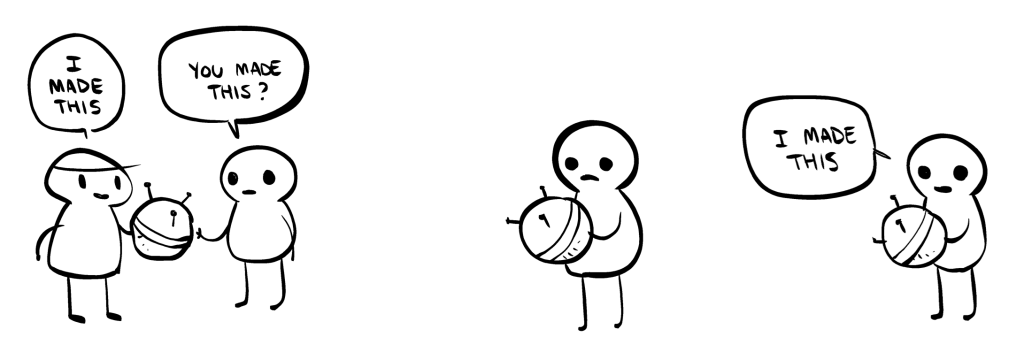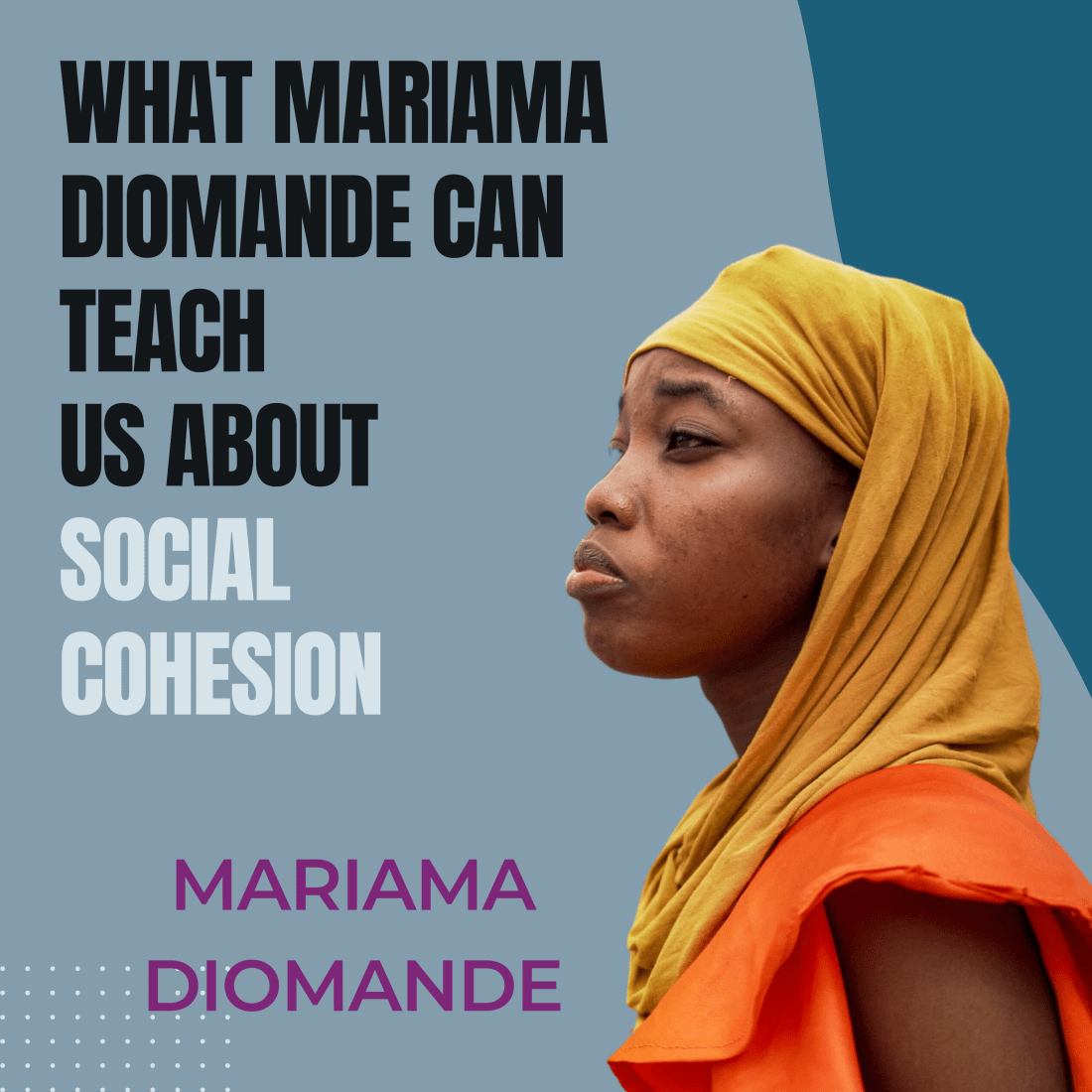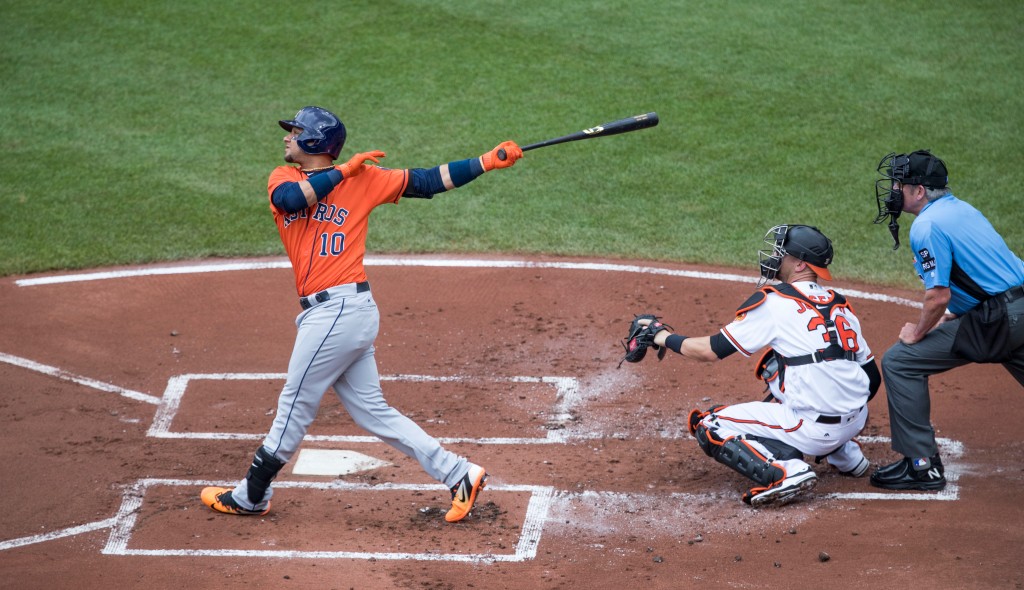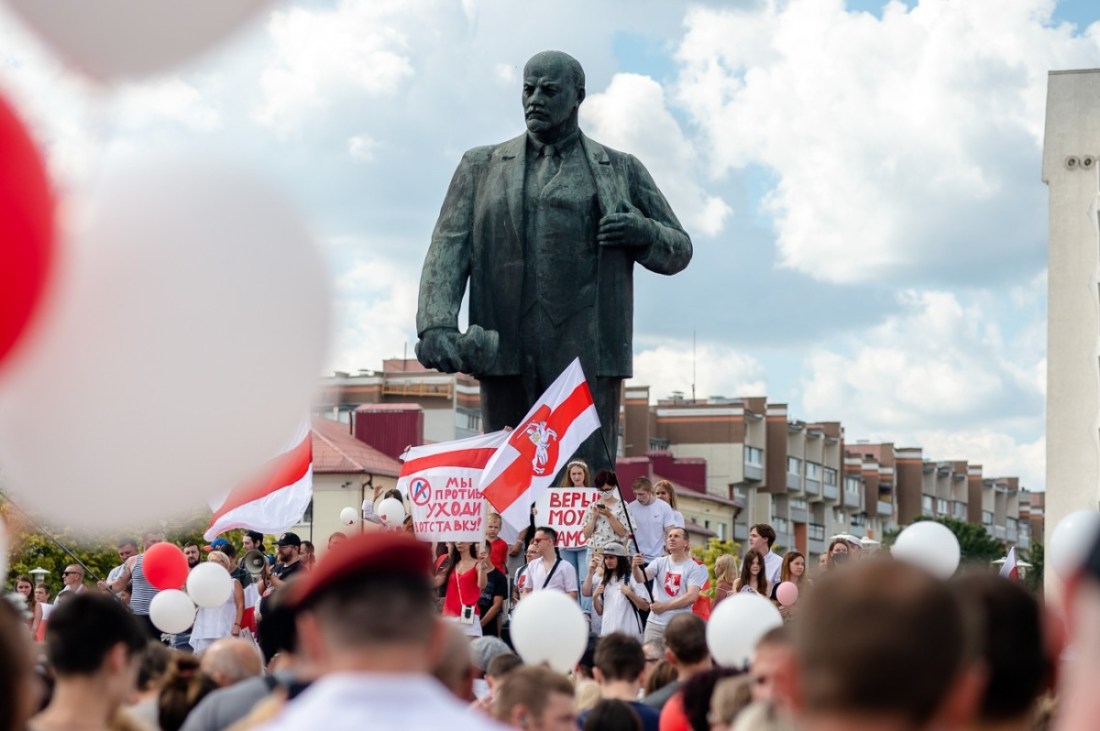
Leaving the US felt like the last chopper out of Saigon, except it was the Americans being left behind, and instead of a Huey it was an Aer Lingus A321neo.1
I spent about two and a half weeks in the US in July and August, for a mixture of business and leisure. If you follow me on social media or tried to visit this blog at some point in the past few weeks, you might have noticed my entire online presence disappearing temporarily. This was no accident. I was trying to make sure I made it through the US immigration process unscathed, having read a few too many news stories about travellers being refused entry and/or detained in recent months, such as the journalist who had written about Palestine protests, the academic whose phone contained messages critical of Trump’s government, or the tourist who had saved a meme of JD Vance. By those measures, it is not difficult to imagine myself being refused entry2 based on any number of features of my online presence and body of published writing. And so I temporarily self censored: I scrubbed my online life, I factory-reset my phone (after backing it up, obviously); I brought my work laptop and left my personal one at home; I left my keffiyeh and anything covered in provocative stickers in Berlin; I was even careful about what books to pack for the plane ride.3
As it happened, the process was almost comically smooth. They didn’t even open my bag; there was some process by which travellers were selected to undergo a second round of security screening, but I could not discern what it was and was, in any case, not among them. All that happened was a bored-looking agent fingerprinted me and took my photo, then asked where I was going, why, and for how long, before ushering me onwards. It was over in less than three minutes.
I had suspected this might happen. I wagered there was a small chance I would run into actual difficulty, possibly being refused entry, and a large chance that it would all be fine and my preparations would look like paranoia in retrospect.4 Talking to friends and family about the issue before and after, they generally occupied one of these two positions too: some seemed positively doubtful that I would be admitted and/or very seriously advised me to “be careful” during my visit; others seemed surprised that I was worried at all.
This is, I think, characteristic of the US’s descent into authoritarianism.5 Immigration agents are not rejecting or abusing all visitors, but they are encouraged and empowered to do so whenever the fancy strikes them. Equally, not every Hispanic person in the US is being imprisoned, but federal agents have made it clear they may imprison anyone who is (or looks) Hispanic, if they feel like it. So on and so forth. Much of what is happening obviously contravenes US federal and constitutional law, so rather than being applied as uniform policy, it falls back on that wonderfully opaque tool: officers’ “discretion”. In any case, the mere possibility that you’ll be unlucky is enough to create fear and thereby limit people’s freedom of action and movement; thus, the regime is exerting power and achieving some of its aims even when you’re not actually being detained. My self-censorship is a prime example.
My aim here is not to write a comprehensive account of The Current Moment in America, though. There are many people much better suited to the task. I’d recommend Jack Hill’s excellent piece in the Philadelphia Inquirer or Charlotte Shane’s essay, for example.
The United States of America and I have always had a complicated relationship. Much about the country and its culture appeal to me, embarrassingly. I am of course an avid baseball fan. I went to an American university for my Master’s, even if I did the whole thing at a European satellite campus. And – at the risk of endangering my leftist credentials – I am genuinely compelled by the professed ideals of the US as a political project, their implementation notwithstanding. “We hold these truths to be self-evident, that all men are created equal” is among the most powerful sentences ever written, both in terms of influence and pure prose.
But it’s always begun and ended at profession, of course. The history of the US is one of cognitive dissonance, of lies, of broken promises. If we wish to talk about founding documents, it can never be claimed that the US was actually founded on principles of liberty when its constitution still contains the text defining Black people as three-fifths of a white person, and when the man who wrote “We hold these truths” was a prolific owner of enslaved people. The whole concept of the nation as a “melting pot” of immigrants, bound together only by ideals – compelling as that might be in abstract – is inextricably bound to its foundation on land “cleared” of its indigenous inhabitants by means of genocide. None of that can be put aside; it is written into America’s DNA.
I thus find myself torn. The largest part of me thinks that the idea of America is irredeemable, that the soul of a country so stained with the blood of hundreds of millions can never be saved. And yet I can’t help but be attracted by the notion – an old one at this point – that even if the United States has never upheld its own ideals, those ideals are sufficiently powerful that it is worth trying to radically remake the country so that it does. The history of America is one of promises made dishonestly and then broken: but imagine if they were fulfilled.
So I am compelled by Martin Luther King Jr.’s hope that “one day this nation will rise up and live out the true meaning of its creed”. I am moved by the text of Abraham Lincoln’s second inaugural address.6 I became emotional looking at the memorial to the 54th Massachusetts Infantry, one of the first Black regiments of the US Civil War, in the National Gallery of Art; I was thinking about what it meant to those men to know that if there was going to be a price in blood for the abolition of slavery, they were putting their share on the table. It was a crusade, a true holy war. Scarcely in history has there been a cause so pure or so righteous as that of freeing people from bondage. I don’t know what proportion of those (especially freedmen) who fought were purely concerned with abolition, and were ambivalent or even negative about the US as an idea, but if any thought they might in the process build a country worth living in, who am I to say that dream was foolish?
The National Museum of African American History and Culture in D.C. is excellent.7 I read much of its history section as a struggle between those two ideas: that the US has an evil at its core that can never be expunged; and that even if those who founded the US never believed in the principles they committed to paper, those principles could upend the world if made reality. Both of those positions seem more than defensible to me. It isn’t my call. It isn’t my country. I was not born there, I do not live there, and I am not most hurt by the privations it inflicts.
What does all that mean now? A lot, in fact. I promised I wasn’t going to try to articulate a grand narrative of the current moment, but I am hardly the first to note that what the US is currently experiencing is merely the most recent stage of the 150-year backlash to Reconstruction. When you read accounts of that time – what the Radical Republicans wanted to accomplish, the volume of new Black representatives elected, state power being used as a force for good (i.e. by sending the US Army against the KKK), you feel like you’re being given a glimpse into an alternate universe in which everything worked out – one where the arc of history really does bend towards justice. If there was an inflection point in the battle for America’s soul, it was the Compromise of 1877.
More recently, I have long been of the opinion that the Republican Party’s transformation8 can be read as a reaction to 2008; there are so many American conservatives who are simply unable to forgive the rest of the country for making a Black man president.9 What we are witnessing is a section of the population fundamentally unable to accept the slow march of social progress. When they say they hate “DEI”, they mean that they think racial minorities (and women, and openly LGBTQ+ people) occupying prominent positions in society is fundamentally and inherently unnatural.10 On a strategic level, their political project doesn’t have real policy goals: they just want to turn back time. Again, I am not making any novel observations here.

The morning I left for the US, I downloaded Christopher Isherwood’s The Berlin Stories to my e-reader. I have been meaning to read them for some time. This pair of autofiction books were the basis for the musical Cabaret; Isherwood was a British writer who lived in Berlin from 1929 to 1933, leaving not long after the Reichstag Fire Decree. The novels are about many things, but their stories fundamentally concern being a late-20s expatriate against the backdrop of a country rapidly disintegrating as fascism rose. I live in Berlin and was travelling to the United States at a time when a far-right authoritarian regime is consolidating power. I am just a few months younger than Isherwood was when he finally left Germany. It felt apt, and I’d been meaning to read them for a while anyway.
Though I had actual reasons to travel Stateside, I was admittedly also motivated by a kind of scholarly curiosity. While my academic work doesn’t focus on the far-right, I have long been interested in it as an object of study.11 So having followed events in America over the past few months with significant interest and concern, I was very curious to see them up close. When I first read about Isherwood,12 it did occur to me how interesting his experience must have been, all the tragedy notwithstanding.
What America is going through in this moment is not unique in the world;13 but then neither was Germany in the 30s. If I’m being honest, much of my preoccupation with the American experience now is to do with my personal connections with the United States and the obvious influence of its culture globally – particularly for anglophones. Still, I think we all recognise that America’s trajectory is important not just for its own sake but because of how it affects the rest of the world. Again, the Germany parallel is instructive. Even at the time, people in other countries were more interested in the rise of Nazism than they were in the rise of Italian fascism, the Iron Guard in Romania, or other fascist and fascist-adjacent regimes, because it was evident to many observers that 1. the German regime was intent on transforming not just Germany but the world, and 2. that they had, (unlike, say, the Italians) the means to do so.
They were proven right. The Berlin Stories was first published as an omnibus in 1945. The political events that form the stories’ backdrop are ominous precisely because we know where they led. I don’t know that now. I do know that very soon after I left D.C., Trump seized control of the city and deployed the national guard and paramilitary federal law enforcement to its streets (which I vote we start calling Martial Law Lite™).14 I also know the regime has stated its intention to effectively purge the Smithsonian Institutions of material it dislikes, so those exhibits that so moved me may not be long for this world. But I do not know how this ends, or at what stage of the process we are at, or anything.
I felt at my most Isherwoodian (if I can coin a word) on my last night in D.C. We went out to a few bars, and ultimately ended up at a kind of speakeasy/dance club behind a door at the back of a deli. I was beginning to feel tired (on my fourth night out in a row) and I had a flight to Albuquerque early the next morning, so I was less than totally into it. As I looked around, I realised everyone else in that room seemed to be really into it though, and I was suddenly overwhelmed by how beautiful and precious a moment it was. Even with everything outside already so bad and getting worse, everyone here was having the time of their lives – not because they were ignorant of or avoiding the reality of the moment, but because when everything is going to shit, joy is more necessary than ever. I wanted to seize each person by the face and tell them I loved them, that they deserved this, that I’d buy them a drink. I didn’t, of course. It would’ve been as self-defeating as it was insane: it was a special moment because it was carefree, and to point it out would be to ruin it.15
Like I said, I don’t know how all this ends. However, I think even in the better scenarios – where this tide of right-wing authoritarianism in the US and across the world is reversed in the relatively near future – things are going to get worse before they get better. So while I think we have a duty not to despair and not to let ourselves or those around us give up hope, I am also scared. I’m scared for all the people who are going to get hurt; I am scared for the people I care about who are in harm’s way; I am scared for the people who were getting hurt even back when we considered things “normal”, who still are now.
However, while I am particularly given to draw historical parallels right now because I’m currently working on a literature review that requires me to read nothing but material about the lead-up to major historical catastrophes16 (and because of who I am as a person), those comparisons shouldn’t be read as predictive. The fact that this moment felt to me like being in Berlin in 1932 does not mean that the Berlin of 1945 is an inevitability. The comparisons can also be instructive. If you know anything about the Nazis’ seizure of power and the lead-up to WWII, you know how much might have been done (by all kinds of people) to prevent what happened, whether before or after ’33.
So, if there’s a lesson to take away, it’s that. Things look really bad: what do we wish had been done before, when things were about to get really bad?
- I am aware that a WWI reference in the title, a Vietnam reference in the first line and a WWII metaphor throughout most of the body is messy, and you might consider that bad writing. But consider this: bite me. ↩︎
- But not detained: on the insistence of my mother I travelled through Dublin, which has US immigration preclearance. ↩︎
- As I read a lot of non-fiction, most of it is either left-wing political theory or about nuclear weapons, and neither of those felt like a good look. ↩︎
- Somewhat like Y2K; if you let me, I will go on an extended rant about how the popular memory of Y2K as a nothingburger exists only because countless engineers patched the issue in advance, and we have learned precisely the wrong lesson as a result. ↩︎
- it is evident that democracy in the US is being dismantled. You can call it the path towards actual fascism (I think there is ample reason to do so, and the potential consequences are almost unthinkably bad) or not, but if you don’t at least recognise this as a far-right authoritarian regime which is trying to consolidate power, you are either woefully under-informed or suffering from a severe failure of reasoning. Either way I don’t know that reading this will be much use to you. ↩︎
- I had already read it several times but inscribed in stone at the Lincoln Memorial it gains new emotive power. I’m only human. ↩︎
- You may be gathering that a lot of my time in D.C. was spent in museums. ↩︎
- Not to imply it was anything good before 2016 – I have no time for those who are nostalgic for “normal Republicans” like George Bush – but it is worse, and very different. ↩︎
- In Chapter 8 of The Kingdom, the Power, and the Glory: American Evangelicals in an Age of Extremism, Tim Alberta quotes (former National Director of Faith Engagement for the Republican National Committee) Chad Connolly as saying, “Obama created the race problem in America”, which sort of sums up the whole thing. There was a previous time when this bloc felt assured that white supremacy in America was unassailable; when they lost that assurance, that to them was the moment there came to be a “race problem”. Regardless of Obama’s merits as a president, his election was symbolic. To US conservatives, it symbolised that loss of certainty – and was to them the ultimate humiliation. ↩︎
- Since they think it is fundamentally unnatural, they assume it must be a conspiracy. Society can’t just be changing slowly over time and their ideals going out of fashion: there must be an orchestrated project to indoctrinate people and rig the system. When they attack media and universities, it is partially because they’re trying to find the secret cultural control centre that they genuinely believe must be at the centre of all of this. ↩︎
- Longtime fans will remember me reporting from Covid conspiracist rallies in 2020. ↩︎
- After a tour of historical queer Berlin a few months back. ↩︎
- See also: Russia, the UK, Hungary, El Salvador, Italy to an extent, Poland until recently, South Korea very nearly etc. ↩︎
- Charlie Kirk kind of gave the game away when he called for “military occupation” and “tanks” in “every street”, similar to when Kristi Noem said the purpose of the National Guard deployment in L.A. was to “liberate the city from the socialists and the burdensome leadership” of the municipal and state Democratic administrations. To that end, I think it is the wrong approach to point out that they’re making it up when they say D.C. is full of crime; obviously that is true, but it doesn’t matter, because: 1. When these people say “crime” they are referring to the existence of homeless people, or the presence of young Black people; they mean it that way and their supporters understand it that way. So do a lot of people who think of themselves as moderates, who are saying stuff like “but they have a point about the crime”. 2. They’ve explicitly admitted the real aim is to seize power, so anyone arguing the facts of their cover story is wasting their time and letting them make the debate about what they want. Stop trying to debate fascists, for the love of god. They’re establishing a quick-reaction force to crush domestic dissent, this really is not the time to try to have a mature discussion about crime statistics. ↩︎
- “There is much pain in the world but not in this room”, to quote the meme. Why bring it in? ↩︎
- Which reminds me, if you know any good scholarly work on the theories of war causation that I might not have read yet, please send it my way, because I need to read all of it. ↩︎








